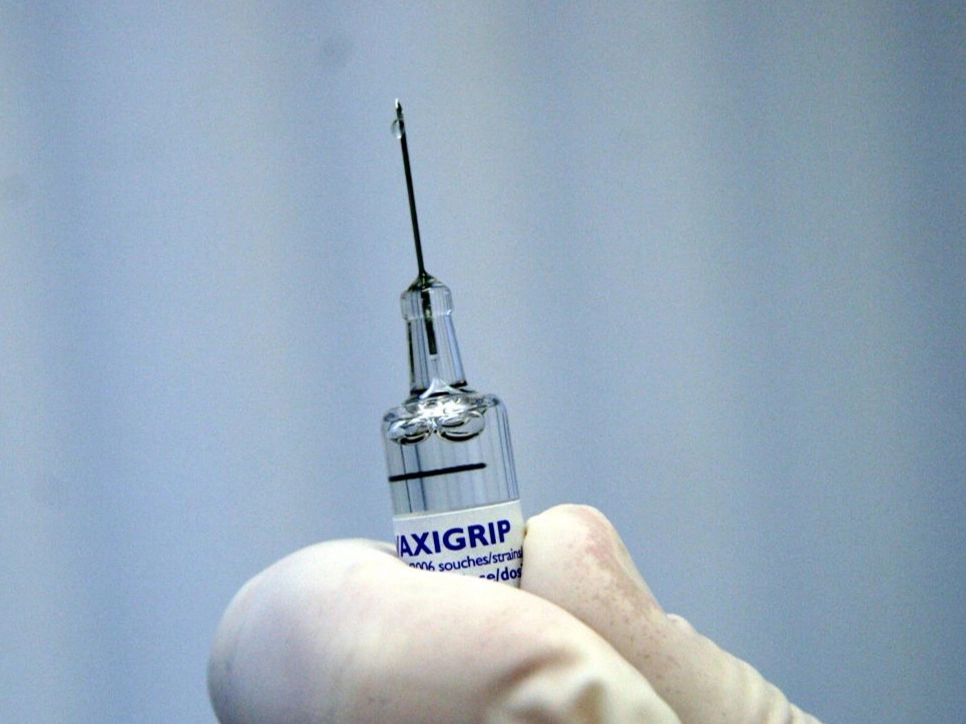Māra Libeka/ Latvijas Avīze

At its meeting on 27 August, the Cabinet of Ministers approved the Ministry of Health’s information report, allowing Rīga Stradiņš University (RSU) to assume state budget commitments for EUR 89 123 until 30 June 2026.
This money is needed as co-financing to enable the university to participate with other countries in the European Union project “European vaccination after Covid-19” (Euvabeco” in 2024–2026. Almost EUR 90 000 is intended as co-financing for the total cost of the project – EUR 445 615, which RSU will receive from the European Union.
The aim of the project is to create the conditions for a new type of vaccination practice across the European Union, following the experience of the COVID pandemic. The RSU explains that the pandemic has changed vaccination practices around the world, introducing hundreds of innovations that would otherwise have appeared years later.
These innovations include, for example, faster research into vaccine production technologies, global cooperation and data sharing, improvements in vaccine logistics chains when one country runs out of vaccines and another has leftovers, and mobile vaccination.
Latvia is participating in three pilot projects, one of which is the development of a digital vaccination card in partnership with Greece, Belgium, Germany and Portugal. This particular project has attracted a lot of attention, not only in Latvia, but also in other countries. The term “vaccination card” is associated by many with the COVID certificate and therefore with compulsory vaccination. Accordingly, this was followed by misleading information in Latvia, France, Germany and other countries. For example, the website sgtreport.com (a US website that republishes interviews and news from various media outlets around the world) states: “The European vaccination card is said to ‘promote informed vaccination decision-making and improve continuity of care across the EU’. But in reality it is a stepping stone to compulsory vaccinations and is also linked to big financial interests that intend to limit personal and national sovereignty.”
The lie is also being spread in Latvia. For example, one of the most active is Jūlija Stepaņenko of the Suverēnā vara party, together with her party member Uģis Sprincis.
In videos posted on Facebook, both are concerned that Latvia is becoming another testing ground – a digital vaccination card will be introduced to ensure that everyone can be tracked.
Basically, this is leading us towards a common slavery, which is presented as digitalisation to make it easier for us to pay, easier to know how we are doing: maybe we need to have our pulse raised or lowered, maybe we need to stimulate our brains… We are put in invisible chains. “I have one card. I go to the doctor, I show it. I use the same card to pay at the doctor, at the store. I drive my car and I show that it is the same as my driving licence. Everything is on one card. Then all these conspiracy theories about chip implantation and so on become reality. Do as you wish, these are the small steps to achieve that common goal, the slavery,” says Uģis Sprincis in the video.
However, after reading the Ministry of Health’s information report, Jūlija Stepaņenko suspects that the digital vaccination card is intended to increase the number of vaccinated people: “Why do you think Latvia will be chosen as one of the countries for this study? People are talking that vaccination coverage among the population could be improved. (..) Won’t these studies just end up with this digital vaccination card becoming a compulsory travel document after a while?”
An activist on X website scares others:
“Latvians, bare your shoulder! Again… Five EU countries – Belgium, Germany, Greece, Latvia and Portugal – will implement the Euvabeco experiment for the European vaccination certificate.”
But this digitised vaccination card has nothing to do with the certificate we know from the COVID period. “The portable digital vaccination card is a personal record of the vaccines received (for example diphtheria, tetanus, tick-borne encephalitis, pneumococcal vaccines, etc.). It is designed to allow people to keep track of their vaccinations and to inform their healthcare providers of the vaccines they have received, if necessary. Currently, a paper-form vaccination passport works in a similar way. The study provides an opportunity to test such vaccination passports in a digital format, providing a list of vaccines received during a lifetime in one place and in digital form,” says Kristīne Ozoliņa, one of the project implementers and a lecturer at the RSU Department of Public Health and Epidemiology.
The digital vaccination card for a specific person will only be created for the purposes of the study. It will under no circumstances impose travel restrictions or requirements.
“It is not a vaccination certificate, as was created during the Covid-19 pandemic to monitor travel and access to certain services. Importantly, vaccination data will not be stored centrally.
The data will be stored with the cardholder, who will carry it with them and control whether or not they give consent,” explains Kristīne Ozoliņa.
If, for example, the digital vaccination card or other tools used in the pilot projects prove their effectiveness, the project will develop a manual on how to put these tools into practice. These will be recommendations aimed at healthcare and public health to make vaccination processes more efficient and convenient. Countries will be able to implement them as they choose and need them.
Nine countries are participating
The Euvabeco project involves 14 partners from nine countries: Belgium, France, Germany, Greece, Latvia, Luxembourg, Poland, Portugal and Sweden. The estimated cost of the project is EUR 8 444 996, including EUR 445 614 for Latvia.
The project started on 1 January 2024 and will run until 30 June 2026.
Latvia is participating in three pilot projects:
- clinical decision making system,
- electronic vaccine instruction manual,
- portable digital vaccination card.
SOURCE: Rīga Stradiņš University
